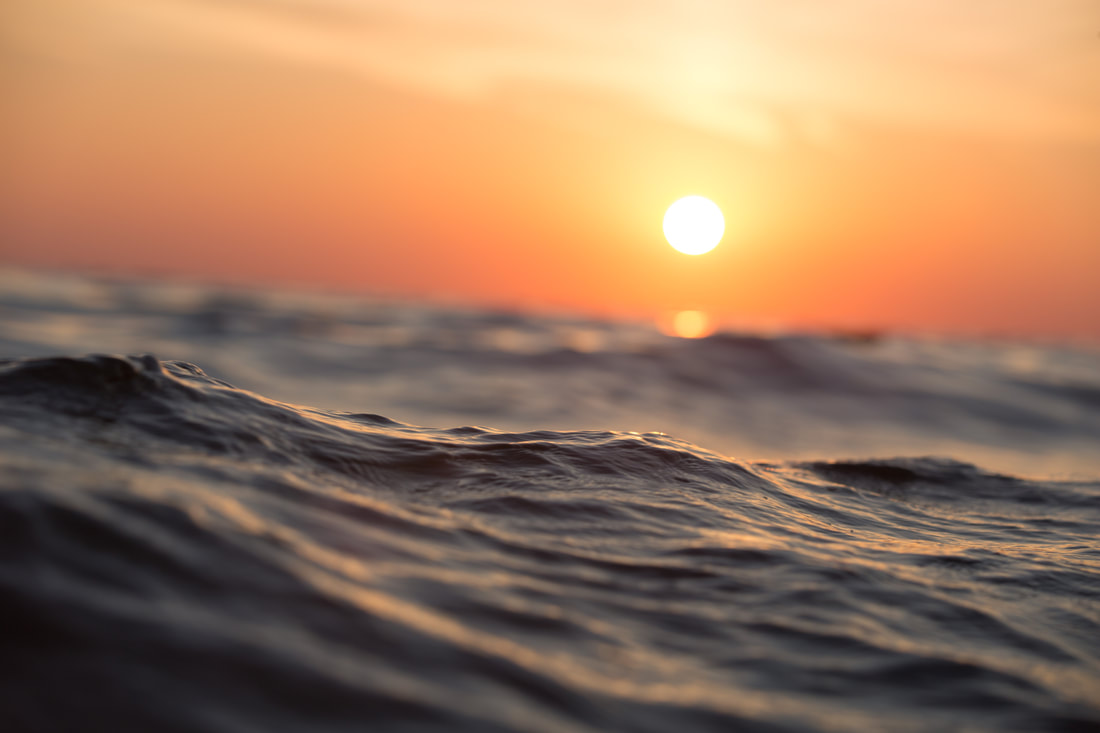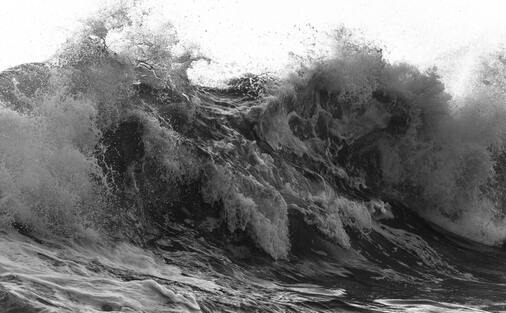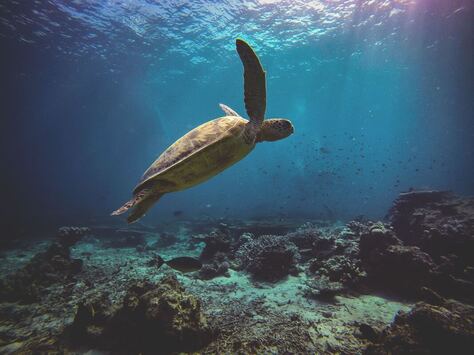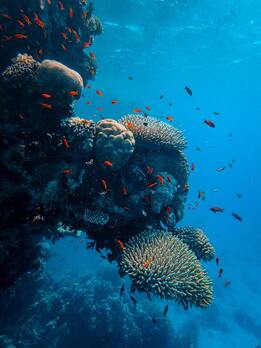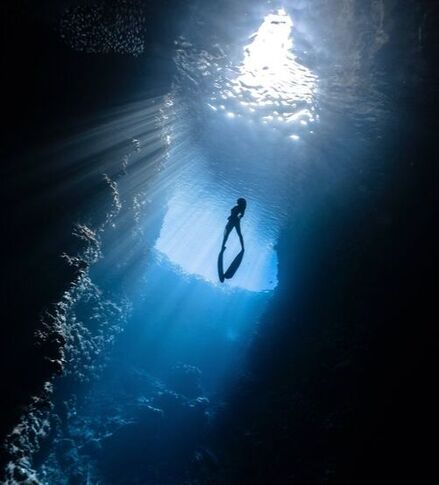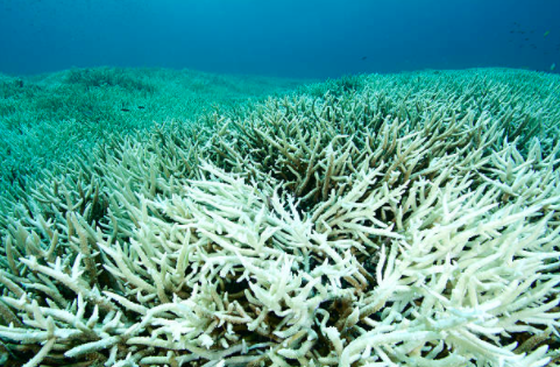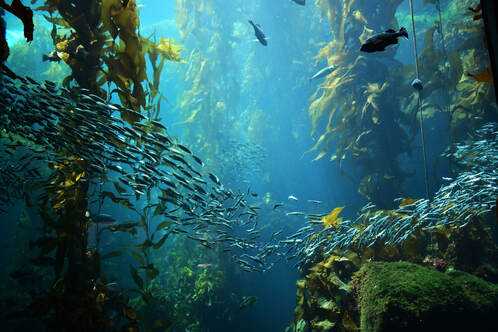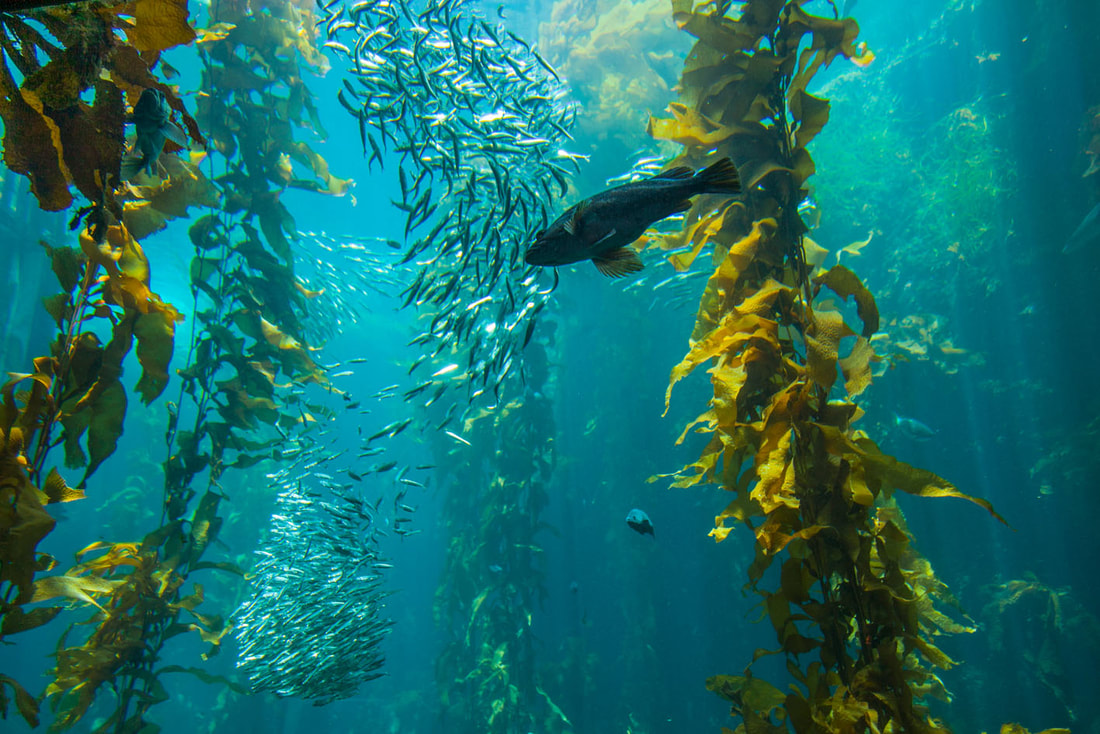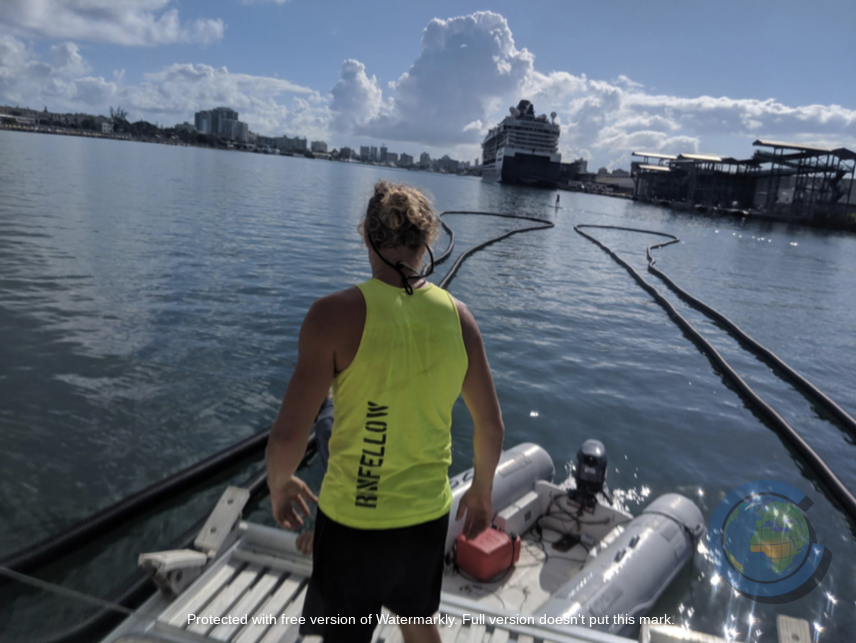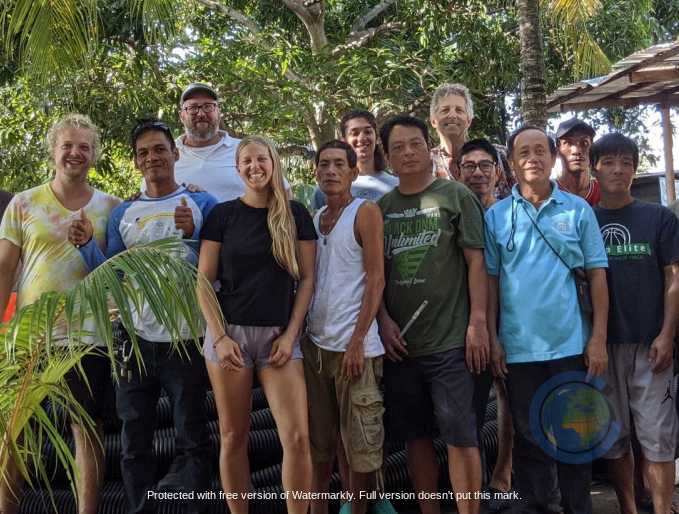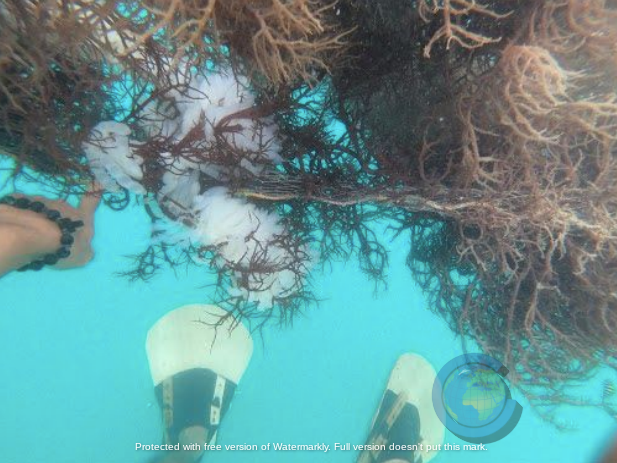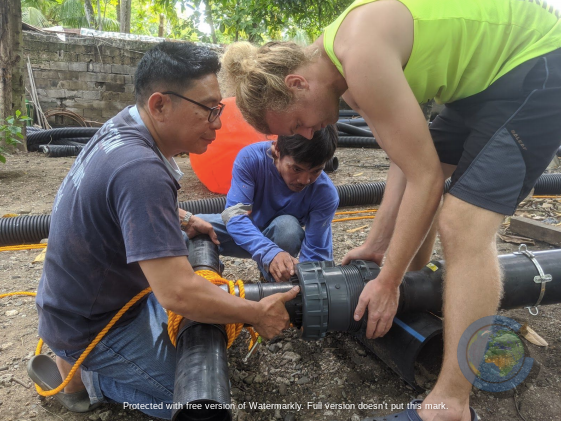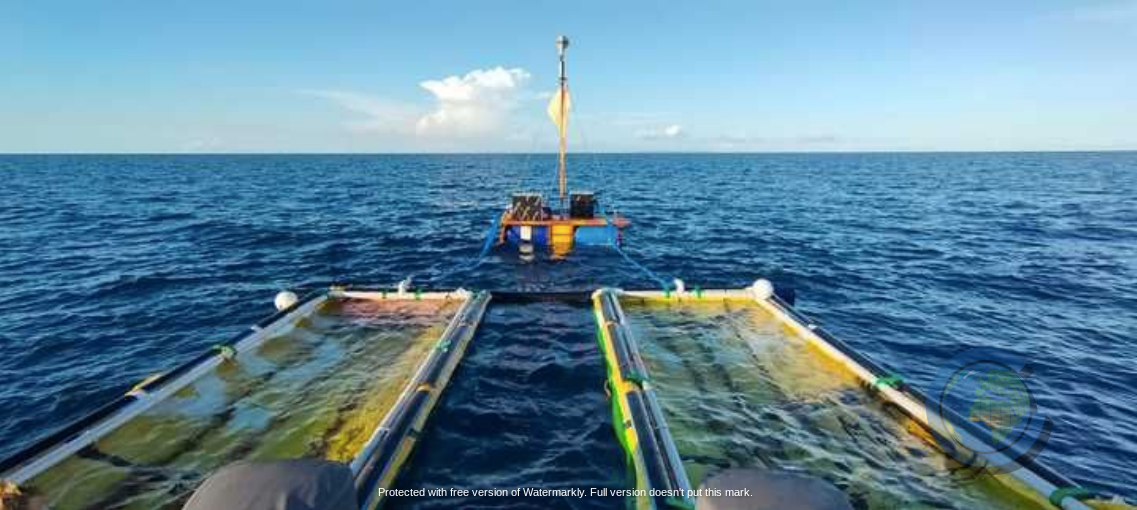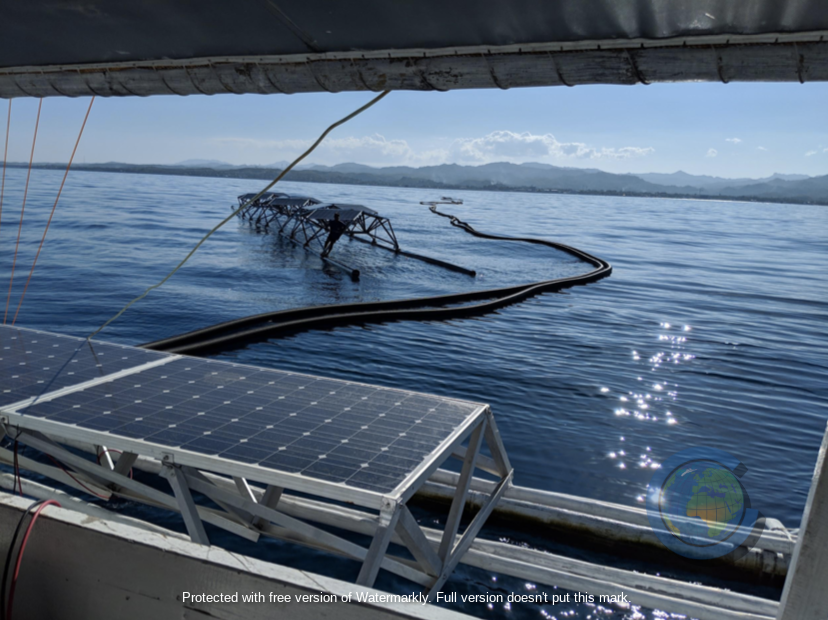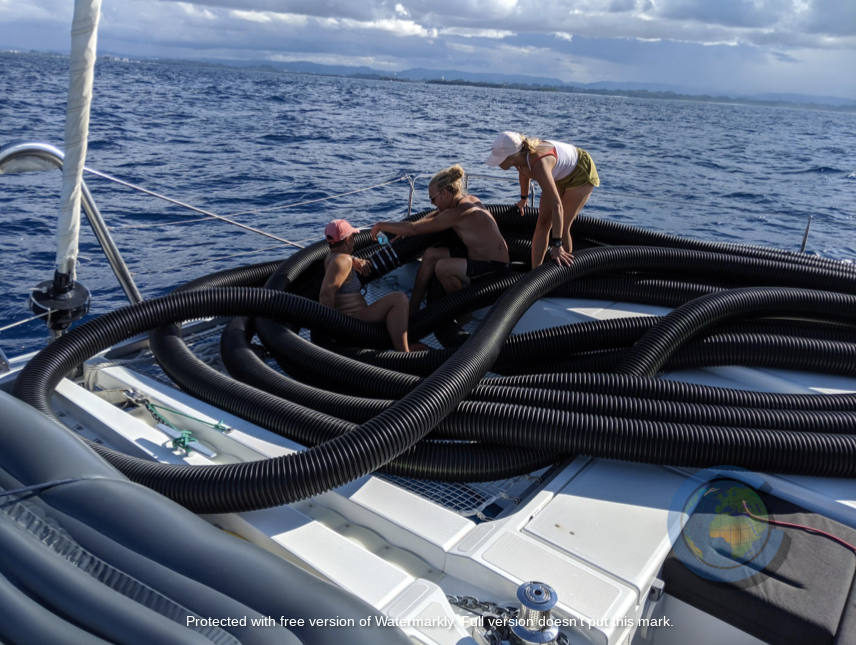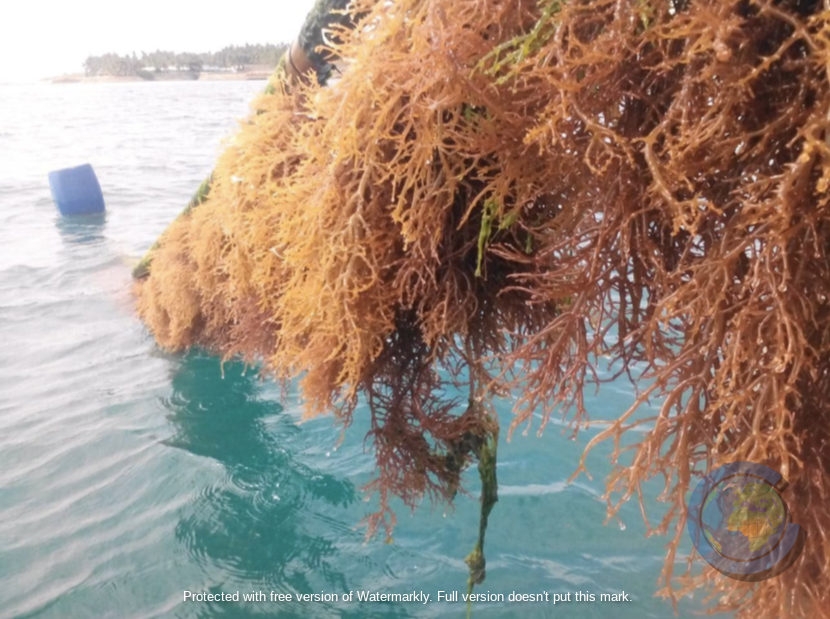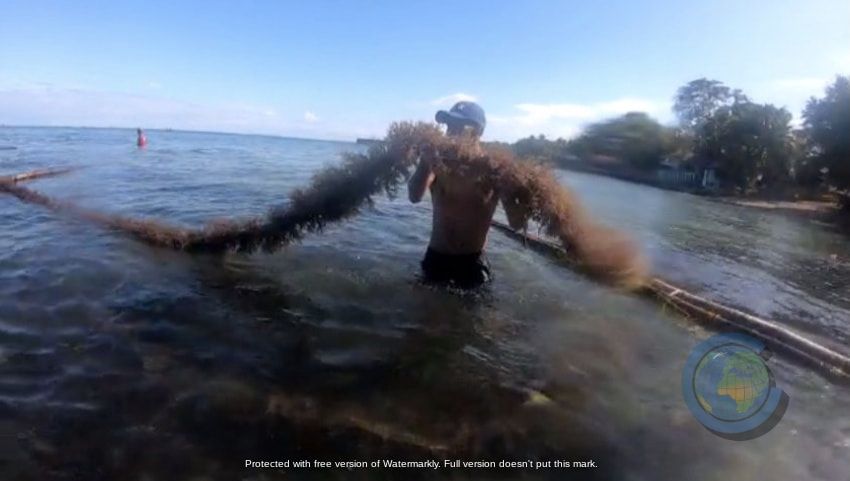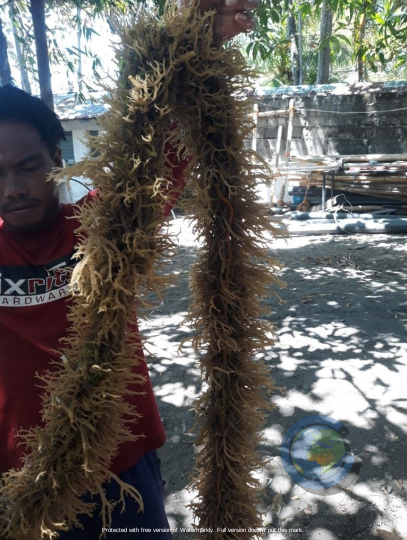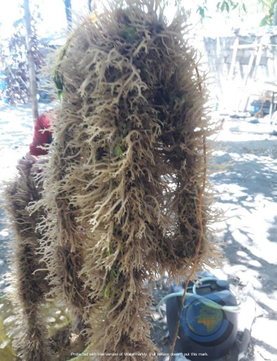|
Part of our passion at JUST ONE Tree has always been the oceans – the incredible power, vast diversity of life, the colourful coral and the calm quiet when under water visiting its wonders. With marine life dying and coral reefs bleaching from rising sea temperatures, in our fight to halt and reverse climate change, we cannot ignore and in fact it is imperative, we also help address the issues our oceans are facing.
|
Ocean acidification is often called the 'evil twin' of climate change. Carbon dioxide that is present in the atmosphere dissolves into the oceans changing its basic chemistry. As it gets more and more acidic, the shells and skeletons of marine life can no longer form. Organisms are already being affected - their shells simply dissolving. This can have an immense impact on the food chain.
|
The increased acidity, when combined with the warming of the oceans, leads to coral reefs dying off and no longer able to offer a healthy ocean habitat for the species who rely on them for food
and protection. Scientists estimate if the current rate of temperature increase continues, the oceans will be too warm for coral reefs by 2050. |
There have been 5 mass extinctions in earth's history.
Each one has been preceded by the death of the coral reefs.
|
But, this is where sea kelp comes in.
Growing up to half a metre a day, kelp is the fastest growing 'tree' on the planet. Like land-based trees, kelp absorbs CO2 in order to grow and is therefore an enormous 'Blue Carbon' sink. By taking carbon dioxide out of the oceans, kelp forests help lower the acidity in the seas and the amount of CO2 in our atmosphere. |
Kelp first appeared about 23 million years ago and grows in large dense groups forming underwater forests.
As well as being ‘Blue Carbon' sinks, kelp forests are one of the ocean’s most diverse eco-systems. Many fish species use kelp forests as nurseries for their young, while marine mammals like sea lions, sea otters and even grey whales use them as shelter from predators and storms. Large predatory species, such as sharks, are known to hunt in the long corridors that form in the forests.
Kelp is a source of income for many families on the lower end of the poverty scale. In Indonesia, for example, over 1 million people rely on seaweed farming for their livelihood.
Kelp also has many other uses. It can be used in food such as Sushi (it's even found in ice-cream), as an organic fertiliser, for bio fuels, healthy omega-3 supplements and fibres for clothing. Even supplementing livestock feed with less than one percent seaweed, reduces cattle methane emissions by 60%.
As well as being ‘Blue Carbon' sinks, kelp forests are one of the ocean’s most diverse eco-systems. Many fish species use kelp forests as nurseries for their young, while marine mammals like sea lions, sea otters and even grey whales use them as shelter from predators and storms. Large predatory species, such as sharks, are known to hunt in the long corridors that form in the forests.
Kelp is a source of income for many families on the lower end of the poverty scale. In Indonesia, for example, over 1 million people rely on seaweed farming for their livelihood.
Kelp also has many other uses. It can be used in food such as Sushi (it's even found in ice-cream), as an organic fertiliser, for bio fuels, healthy omega-3 supplements and fibres for clothing. Even supplementing livestock feed with less than one percent seaweed, reduces cattle methane emissions by 60%.
Kelp is in decline because of the struggle to grow in warmer waters, so simply planting more isn't tackling the actual problem. This is why at JUST ONE Tree we are incredibly excited to partner with the Climate Foundation to help assist mother nature in regenerating kelp forests.
As well as planting at least 1 tree, 3 pence from every pound donated to JUST ONE Tree goes directly to supporting this vital nature-based solution.
As well as planting at least 1 tree, 3 pence from every pound donated to JUST ONE Tree goes directly to supporting this vital nature-based solution.
The Climate Foundation, as featured in the film '2040', have engineered a system known as Marine Permaculture (MP). MP uses green technology to bring cooler nutrient-rich water from depths of 200 – 500 metres up to where kelp is grown on floating platforms. The platforms provide a structure onto which the kelp attaches, creating a mini eco-system. Because the platforms are floating, the kelp is resilient to damage from storms.
Marine Permaculture is assisting nature by creating ideal growing conditions.
The results so far have been impressive.
Images © Climate Foundation
Not only are kelp growing faster once more, but Marine Permacaulture is enabling it to grow throughout the year rather than just cyclical. The cooler nutrient-rich water is encouraging both the growth of kelp and plankton. The kelp provides habitat for forage fish, who will feed off the replenished plankton. Game Fish will, in turn, eat these forage fish and so it continues up the food chain to larger predators such as tuna and sharks.
After their success in the first two phases of testing, the Climate Foundation are now into phase three, working with local teams in both the Philippines and Tasmania.
After their success in the first two phases of testing, the Climate Foundation are now into phase three, working with local teams in both the Philippines and Tasmania.
|
In the Philippines the test results are already showing that in regular waters there has been no growth, in fact the kelp are dying, because the seas are too warm. In contrast, the kelp in the cool nutrient-rich waters provided by Marine Permaculture, are growing up to 5% a day. Fish and dolphins are already swimming around the kelp platforms and even a plankton-eating whale shark has shown up.
|
The Climate Foundation is leading the way in carbon removal from the oceans through kelp forest regeneration. By tackling the heart of the problem using Marine Permaculture, it is combating both ocean acidity and rising sea temperatures which, in turn, protects, preserves and increases marine biodiversity.
This is why we are thrilled that JUST ONE Tree is collaborating with the Climate Foundation to help them take such positive strides.
This is why we are thrilled that JUST ONE Tree is collaborating with the Climate Foundation to help them take such positive strides.

